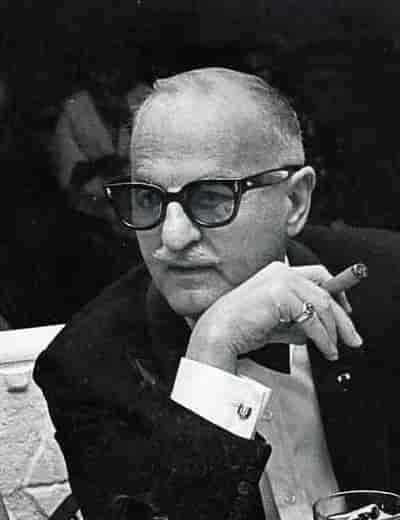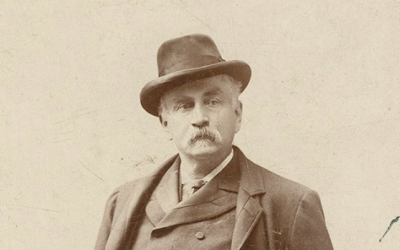Darryl F. Zanuck (1902-1979), a native Nebraskan, produced some of Hollywood’s most important and controversial films. He helped found 20th Century Fox and remained a major force in filmmaking for more than forty years, from the end of the 1920s until the beginning of the 1970s. Three of his films won Academy Awards for best motion picture, and a number of others received nominations. He played a memorable part as a writer and producer in the Hollywood studio system and was one of its longest survivors.
Zanuck was born in Wahoo on September 5, 1902, the product of an unhappy marriage that left him abandoned by both of his parents by the time he was thirteen. In 1917, when he was fifteen, he lied about his age and joined the Nebraska National Guard, and saw combat in France and Belgium during World War I. After returning to civilian life at age eighteen, he decided to become a writer, and in 1923 he joined the fledgling Warner Brothers studio as a staff writer. Among his greatest successes in the 1920s were his scripts for the World War I canine hero Rin Tin Tin. At the age of twenty-three, Zanuck became head of production for Warner Brothers. Two years later he produced the movie The Jazz Singer, often called the first “talkie,” which brought about the end of the silent film era and changed the nature of the film industry forever.
In 1933 Zanuck left Warner Brothers to found Twentieth Century Pictures with Joseph Schenck, releasing their material through United Artists. In 1935 Twentieth Century Pictures bought out Fox Film Corporation, begun by William Fox in 1915, and founded 20th Century Fox. Zanuck was vice-president of this new studio and was actively involved in editing and producing.
Zanuck ranks as one of the most famous and long-lived of Hollywood’s movie moguls. A brilliant producer who possessed the unequaled ability to detect potential in screenplays and screen actors, he oversaw scores of films and created many film stars such as Shirley Temple and Betty Grable, World War II’s pinup girl. He helped create 20th Century Fox, a major Hollywood studio, functioning as its chief of production from the mid-1930s through the mid-1950s. Three of the films he produced received academy awards: How Green Was My Valley, 1941; Gentleman’s Agreement, 1947; and All About Eve, 1950.
Zanuck left Fox at the end of the 1950s to embark on a career as an independent producer. He returned to the studio in 1962, replacing Spyros Skouras in a confrontation over the release of Zanuck’s production of his most celebrated film, The Longest Day, amid the crisis caused by cost overruns surrounding the filming of Cleopatra. He saw several more years of success at the head of the company (with his son, Richard, as chief of production). The studio kept abreast of what audiences in the 1960s wanted, with such diverse titles as The Sound of Music (1965), The Sand Pebbles (1966), and Planet of the Apes (1968). Zanuck remained in place, the last of the moguls to hold power in the movie business, until the dawn of the 1970s, when business reverses forced him out. He died in 1979 in Palm Springs, California, at the age of seventy-seven.

Darryl F. Zanuck, 1964.




